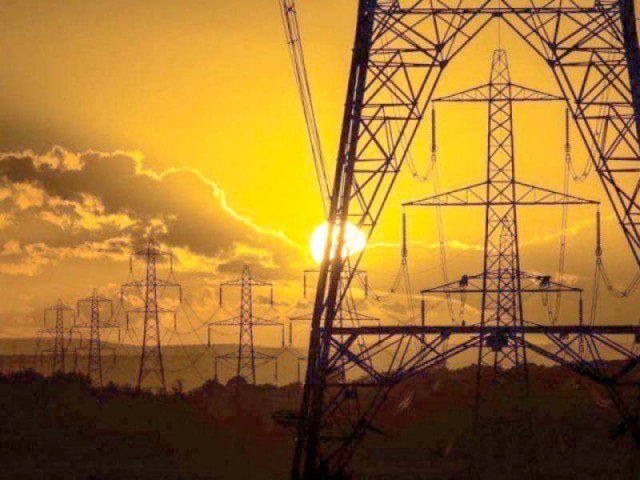Power tariff increased slightly
Consumers to be charged Rs0.10 per unit less as compared to August 2022

The National Electric Power Regulatory Authority (Nepra) on Wednesday indicated increasing the power tariff by Rs0.09 per unit on account of fuel cost adjustments (FCAs) for the month of September 2022.
During a public hearing held on October 25, an intervenor raised a question about the difference between the monthly fuel adjustment mechanisms for power distribution companies (Discos) and K-Electric (KE).
While the power regulator reduced the power tariff for KE consumers by Rs4 per unit on account of FCAs for the month of September, it had indicated raising the tariff for the consumers of Discos.
This was despite the fact that KE powerplants were generating electricity at a cost of over Rs37 per unit. In response, the Nepra authorities had said that KE and the Discos had different mechanisms to revise tariffs on account of fuel adjustments.
Meanwhile, in a statement, the power regulator said that a public hearing was conducted at the Nepra headquarters regarding the FCA of Discos for September.
The hearing was presided over by Nepra Chairman, Tauseef H Farooqui and attended by other members of the authority.
The Central Power Purchasing Agency (CPPA) had submitted a request for an increase of Rs0.20 per unit. However, based on the preliminary data analysis conducted by Nepra, the power regulator calculated the FCA to be Rs0.09 per unit.
Earlier, in August 2022, consumers were charged an increase of Rs0.19 per unit, which was applicable only for one month. Consequently, consumers will be charged Rs0.10 per unit less as compared to the tariff hike witnessed in August 2022.
Read NEPRA reduces KE tariff by Rs4.70 per unit
Nepra explained that this change would also be applicable for one month only and applied to all Disco customers except lifeline and electric vehicle charging stations.
A detailed decision will be issued after further scrutiny of the data, said the regulator. During the public hearing, Nepra officials raised questions over the violation of the merit order in the use of fuel in the powerplants.
According to the merit order, CPPA is bound to operate its powerplants using cheaper fuel before switching to expensive fuel.
Officials from the National Transmission and Despatch Company (NTDC) said that there had been a variation in the power load of the system.
Therefore, they had been forced to operate more responsive powerplants, irrespective of the merit order, to maintain stability of the system.
Questions regarding the use of RLNG based powerplants were also posed, in response to which the NTDC officials said that the RLNG based powerplants were efficient and therefore more responsive. However, they claimed that they did not receive the required RLNG to run these powerplants.
The powerplants require 800 mmcfd RLNG whereas they were provided with 415 mmcfd RLNG, said the officials.
This was the reason the company was forced to run the expensive fuel-based powerplants.
Responding to a question regarding powerplants shutting down, NTDC said they had to shut down the powerplants as they were following the merit order. In addition, they had also reduced the supply of electricity on high loss feeders resulting in the shutting down of some powerplants.
Regarding the restrictions imposed by the central bank on the opening Letter of Credits (LCs), the officials said that coal-based powerplants required payments of $80-$85 million to acquire the imported coal required to run them.
Regarding the import of equipment for the powerplants, they said that while the central bank had enhanced the limit of the LCs, there were still problems with importing the equipment due to the restrictions imposed.



















COMMENTS
Comments are moderated and generally will be posted if they are on-topic and not abusive.
For more information, please see our Comments FAQ